
Hello! All this week, as you might have noticed, Eurogamer has been celebrating Pride with another series of features exploring the intersection of queer culture and gaming. As ever, it's been a pleasure and a privilege to have so many wonderful people share their stories on the site - a massive thanks to Keza MacDonald, Dom Peppiatt, Ed Nightingale, Caelyn Ellis, Ashly Burch, and everyone who helped out behind the scenes - and we've now gathered up all of this year's features into a conveniently digestible list for your leisurely weekend perusal below.
As ever, Eurogamer will continue celebrating the achievements of - and highlighting the issues affecting - the LGBTQIA+ community in gaming throughout the year, and we'll be back with another week of Pride celebrations in 2026. We hope you've enjoyed this, our sixth annual Pride Week, and if you've missed out on any of our previous year's festivities, you can catch up on everything over on our Pride Week hub. Until next time!
How far have we really come since The Sims? A short, sweet history of being bi in games - by Keza MacDonald
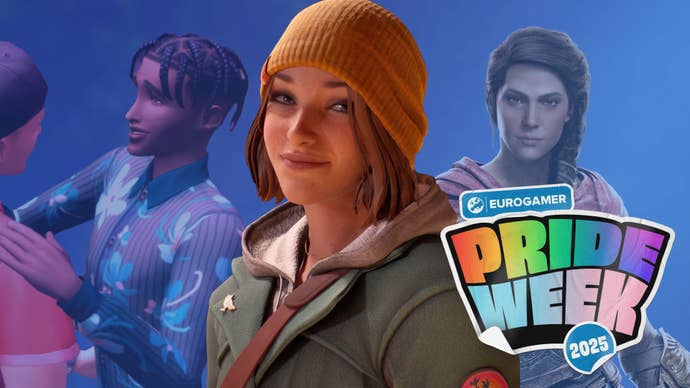
On Monday, The Guardian's gaming editor Keza MacDonald kicked off our Pride Week celebrations with a brief history of bisexuality in video games, taking a look how the industry's approach to representation has changed over the years - from playersexuality to the studios tackling more specifically queer stories across the likes of Life is Strange, Hades, and beyond.
"When queer representation in games really started taking off in the mid-2010s," Keza wrote, "it began with lesbian stories and romances. Before 2014, when I was in my mid-twenties, I had never played as a teenaged girl in a video game, let alone a queer one; then came The Last of Us: Left Behind, with its heart-wrenching depiction of a young Ellie's formative relationship with her best friend. 2013's Gone Home also depicted a relationship between two teenaged girls, though from the outside - its denouement hit hard for me, because at that time I almost didn't dare to hope that a game might be telling a story like this, about queer girls in love."
You can read Keza's full article here.
"The heart has no bounds": A study of polyamory in games, how it's done well, and where we should go next - by Dom Peppiatt
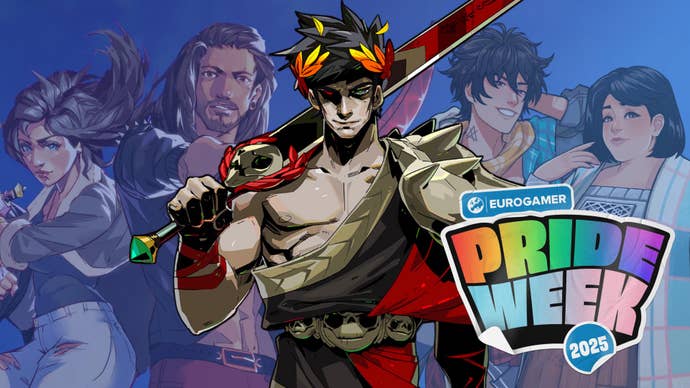
Everybody's favourite tousle-haired prince of the underworld Zagreus also made an appearance in Tuesday's Pride Week feature, in which Eurogamer's deputy editorial director Dom Peppiatt explored polyamory in games; as developers strive toward more authentically queer stories, Dom observed, it's heartening that well-written poly options - from Hades and Date Everything to I Was a Teenage Exocolonist - are increasingly coming to the fore.
"Given the lack of poly representation across popular media as a whole, I am actually pretty surprised with how well games handle it," Dom wrote. "It feels like a lot of games are actually better poised to observe and explore non-traditional relationship structures than many TV shows or movies. Perhaps it's because there's a higher level of agency in games, and that player choice naturally lends itself to divining the right relationship - or relationships - as a mechanic in an interactive media comprised almost entirely of, you guessed it, overlapping mechanics."
You can read Dom's full article here.
Final Fantasy 14's queer community and the importance of chosen family - by Ed Nightingale
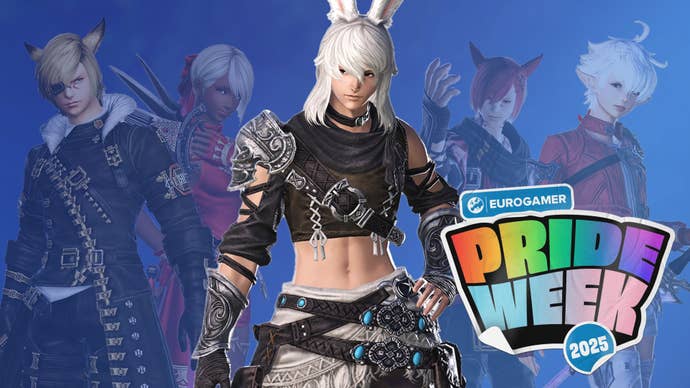
As we hit the midpoint of Pride Week on Wednesday, Eurogamer's deputy news editor Ed Nightingale returned to the world of Final Fantasy, a series with an enduring appeal for many queer players around the world. More specifically, Ed took a closer look at Square Enix's long-running MMO, Final Fantasy 14, discovering a thriving community of queer players who've found vital connections, friendships, even families of sorts, in an uncommonly welcoming game.
"As a lifelong Final Fantasy fan," Ed wrote, "I - like many queer players - have always been fascinated by the series' distinct fantasy realms and its colourful casts of spiky-haired, magical, occasionally cross-dressing, and sometimes wonderfully non-human characters... That's why, when I was lucky enough to attend the Final Fantasy 14 Fan Fest events in 2023, I was struck by the diversity and kindness of the game's community [where] players have met queer friends, discovered an in-game world where they can be themselves, and found a chosen family."
You can read Ed's full article here.
Games can be so much more than an escape: they can inspire you to take action - by Caelyn Ellis
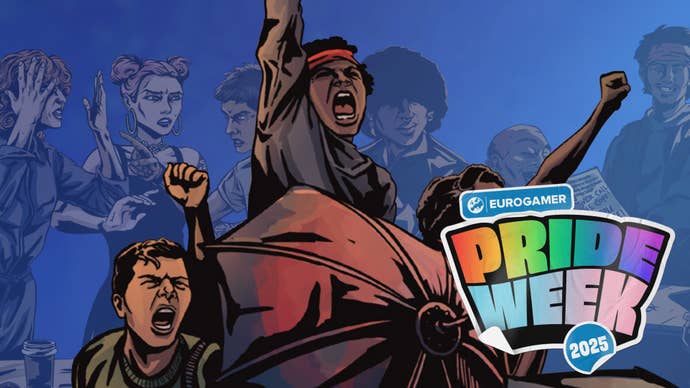
On Thursday, long-time Eurogamer contributor Caelyn Ellis (now a regular writer at the tabletop-focused publication Rascal News) let out a rallying cry for action in these challenging times. As Caelyn discovered, while the prospect of fighting back against seemingly impossible odds might sound intimidating, it turns out games have perhaps been equipping us with the tools to do just that - and become real-life heroes - all along.
"Connecting the dots between the real-world political organisation portrayed in Mad As Hell and the sort of fantasy adventuring shenanigans found in a more traditional RPG resulted in minor epiphany," Caelyn wrote. "Right now, queer people, particularly trans people, are under attack. We need more than allies; we need accomplices, defenders and, at the risk of sounding a little trite, we need heroes. Heroes like you already know how to be... I'm asking you to take this further and let games inspire you to take action."
You can read Caelyn's full article here.
Podcast special: Ashly Burch on the importance of queer roles, mental health, and authentic representation in gaming
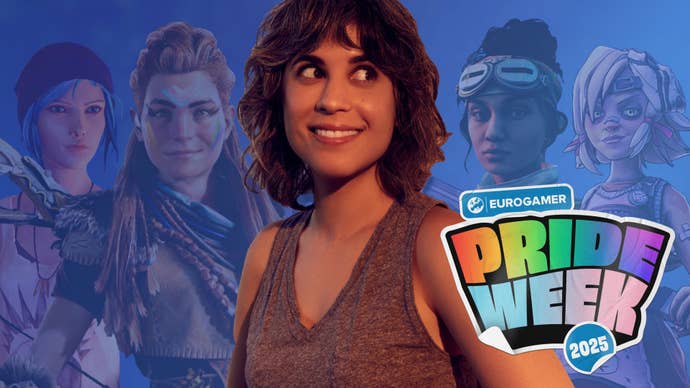
And for our final Pride Week feature of 2025, we chatted with actor and writer Ashly Burch for a very special edition of the Eurogamer podcast. Making their second Pride Week appearance, Dom Peppiatt hosted a wide-ranging discussion of queerness and gaming, touching on everything from Burch's most iconic (and notably queer) roles - including the Horizon series' Aloy and Borderlands' Tiny Tina - to how representation of one group can be a benefit to all. In the spirit of Pride, this special episode of the podcast is freely available to all.
"I think my favourite thing about this talk was the way that, time and again, it became evident that queerness is not just a 'one-size-fits-all' thing," Dom wrote in their intro to the podcast. "That Burch's understanding of pansexuality is as valid and important as my understanding of bisexuality. There are multiple instances of our chat naturally dovetailing with something we mentioned earlier; how representation of one group can be a benefit to all, how we - as queer people - can claim characters of our own just like any other marginalised group can, and how important it is to use our platforms to educate, promote, and persist."
You can listen to the podcast in a variety of different forms here.

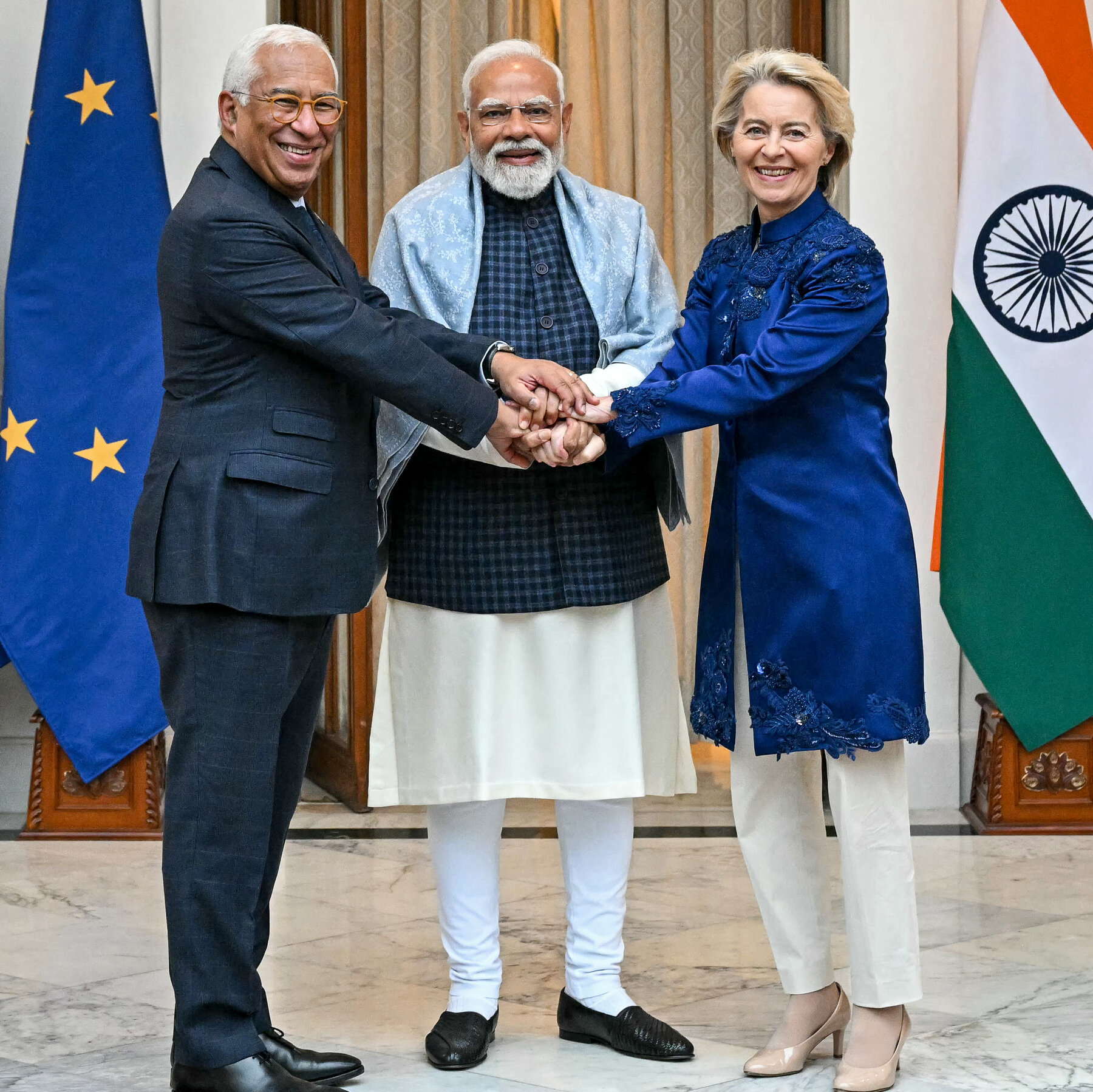

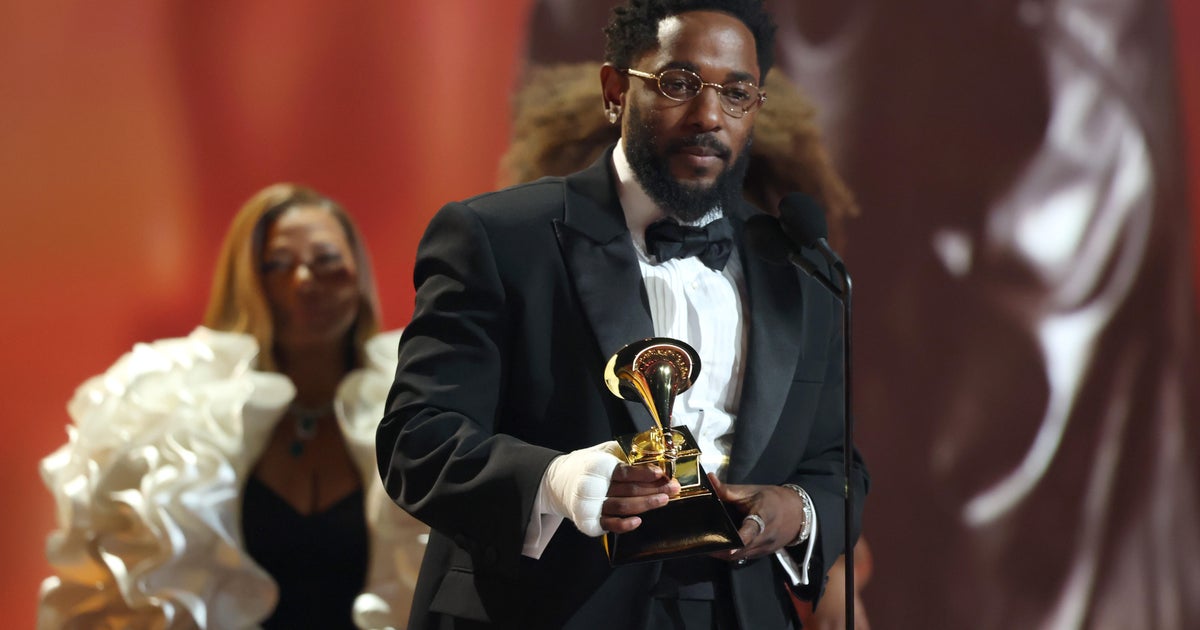



-3.png)



